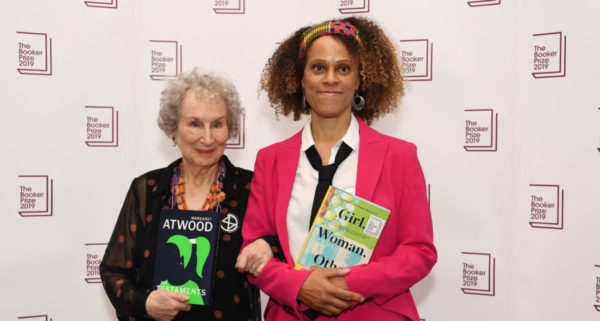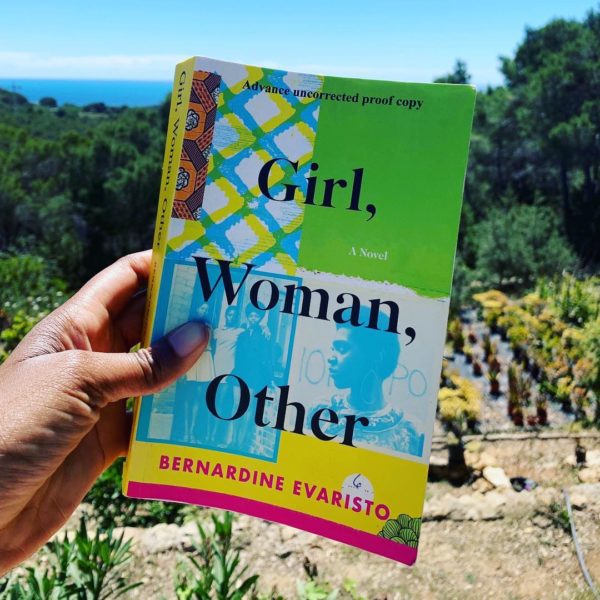
The Nigerian-British novelist Bernardine Evaristo has been awarded the 2019 Booker Prize for Fiction, for her novel Girl, Woman, Other, her eighth book in a career gloriously distinguished both by experimental fiction and exceptional community service. It was a joint win with the Canadian novelist Margaret Atwood, whose The Testament, the sequel to the classic The Handmaid’s Tale, has been a runaway critical and commercial hit, and the third time the prize would be split, a move that the judges this time describe as “explicitly flouting” the prize’s rules. Stunningly, Evaristo, who is 60 this year, is both the first Black woman and the first Black British author to receive the £50,000 honour, the most prestigious in fiction. She is also the second Nigerian to do so, after Ben Okri, whose The Famished Road was awarded the prize in 1991. While this is Evaristo’s first shortlisting, it is Atwood’s second win, after her The Blind Assassin was chosen in 2000.
The Brunel University creative writing professor, a dynamic visionary best known in the African literary scene as the founder of the Brunel International African Poetry Prize, the continent’s most influential poetry institution, is a prolific writer of fiction. Her oeuvre spans the experimental novels The Emperor’s Babe (2001), Soul Tourists (2005), and Lara (2009), the novella Hello Mum (2010), the formal novels Blonde Roots (2008) and Mr Loverman (2013), and the poetry collection Island of Abraham (1994).

Girl, Woman, Other was released on 2 May 2019 by Penguin Random House imprint Hamish Hamilton. It was hailed by Elle as “a choral love song to black womanhood in modern Great Britain.” Here is a description by its publishers:
Teeming with life and crackling with energy – a love song to modern Britain, to black womanhood, to the ever-changing heart of London.
Girl, Woman, Other follows the lives and struggles of twelve very different characters. Mostly women, black and British, they tell the stories of their families, friends and lovers, across the country and through the years.
Joyfully polyphonic and vibrantly contemporary, this is a gloriously new kind of history, a novel of our times: celebratory, ever-dynamic and utterly irresistible.
Read our full coverage of the book here.
Alongside Evaristo on the shortlist was Chigozie Obioma, who was making a second consecutive appearance following the inclusion of his debut novel The Fishermen in 2015, becoming the first Nigerian to be shortlisted twice and the first African to be shortlisted for their first two novels. There had been two more Africans on the 13-strong longlist: the Nigerian Oyinkan Braithwaite, for her debut My Sister, the Serial Killer, and the British-South African Deborah Levy, for The Man Who Saw Everything.
The six-strong 2019 shortlist was completed by former winner Salman Rushdie, for his Quichotte; the Turkish novelist Elif Shafak, for her 10 Minutes 38 Seconds in This Strange World; and the British-American Lucy Elmann, for her Ducks, Newburyport. The shortlisted authors will receive £2,500 and a specially bound edition of their novel.
The judging panel comprises the former publisher and editor Liz Calder, the novelist Xiaolu Guo, the musician Joanna MacGregor, the writer Afua Hirsch, and Hay Festival director Peter Florence, who chaired it. They read 151 submissions.
They described Girl, Woman, Other and The Testaments as “fully engaged novels, they are both linguistically inventive, they are adventurous in all kinds of ways. They address the world today and give us insights into it and create characters who resonate with us, and will resonate with us for ages.” Florence called Girl, Woman, Other “groundbreaking,” with “something utterly magnificent about the full cast of characters,” terming Evaristo’s use of polyphony a “strategy against invisibility.”
He continued: “These are big ambitious books. One of the learnings I’ve had is that all the literary finesse, the elegance of language, the brilliance of structure, all these go to serve whether or not the author has something really valuable to say. These books both have something urgent to say and they also happen to be wonderfully compelling page-turning thrillers, which I think can speak to the most literary audience, as well as to readers who are only reading one book, or in this case two books, a year.”
While the Booker prize has been split two times previously—between Nadine Gordimer and Stanley Middleton in 1974 and between Michael Ondaatje and Barry Unsworth in 1992—the rules were changed after the second time, stating that the prize “may not be divided or withheld.” But after a three-hour deliberation, during which the Booker Foundation officials rejected the suggestion, the judges went ahead with “absolute consensus.”
“They have actively broken the rules,” said the Booker Foundation literary director Gaby Wood. “The chair of trustees was also involved in saying no … It is an explicit flouting of the rules and they all understood that.” However, the Foundation will be paying both Evaristo and Atwood, splitting the money.
With this win, Evaristo’s novel is projected to sell hundreds of thousands of copies in coming months. The prize’s 2018 winner Anna Burns saw sales for her Milkman skyrocket from 963 in the week before the announcement to 9,446 in the week after, and then to 18,786 in the week following. At the moment, the novel has sold 546,500 copies in all formats and been translated into 40 languages.
In our report of the shortlist, we bet on a win for Evaristo or Obioma, who eventually became third and second favourites to win based on bookies’ odds:
Alright, we know what you’re thinking: Atwood and Rushdie are former winners; Rushdie’s novel hasn’t been universally well received by critics; Atwood’s isn’t out yet; Elmann is being predicted as the underdog; and not everyone would be keen on the former two even if another win for Atwood would help the industry by way of sales. And then there are Evaristo, for whom this would be the crowning achievement in a brilliant creative and curatorial career, and Obioma, who is one of this prize’s biggest success stories, and Shafak, who has been under investigation by the Turkish government. Not because they are African, but our money is on Obioma and Evaristo.
Brittle Paper congratulates Bernardine Evaristo!
(Where’s that Champagne?!).
NOTE: This post will be updated with the judges’ comments soonest.









Zimbabwean author Noviolet Bulawayo’s Novel Glory shortlisted for 2022 Booker Prize - VicFallsLive September 07, 2022 10:09
[…] The winning author receives a cash prize of £50,000 and global recognition. African writers have been quite successful in securing the prize in the past few years – Damon Galgut won in 2021 and Bernardine Evaristo in 2019. […]